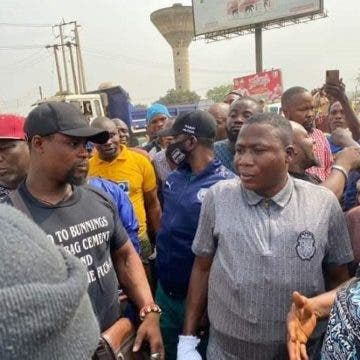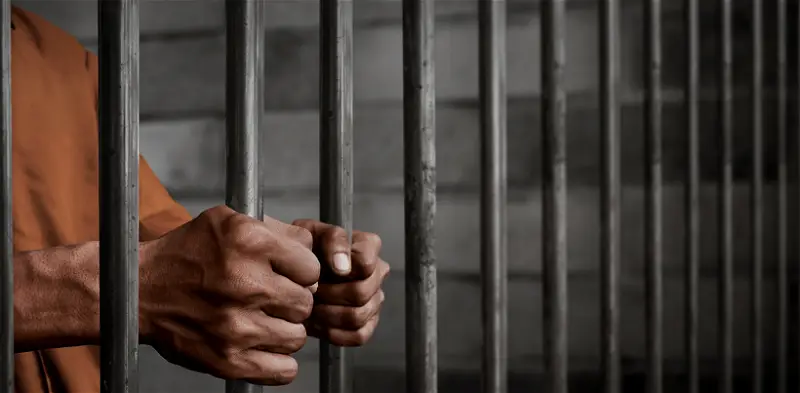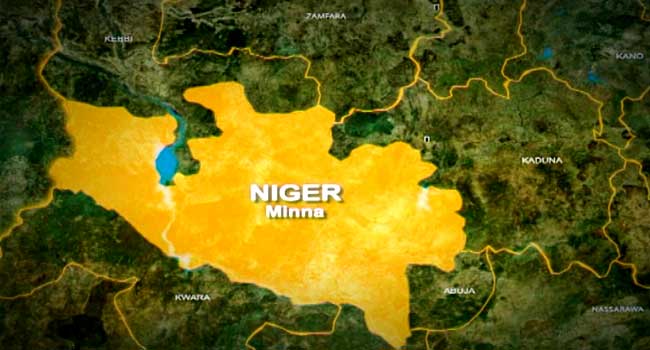Yoruba youth leader, Mr Sunday Adeyemo, better known as Sunday Igboho, who came to prominence after he issued an eviction notice to criminal herders in Ibarapa area of Oyo State last month has declared that it was time for the Yoruba to have their own nation to be called Oodua Republic, saying this is the year of freedom for Yoruba nation. Speaking at an event which video has gone viral, Sunday Igboho lamented that the Yoruba ethnic group had been marginalized under the present government and he would soon lead other Yoruba youths to declare freedom from the Nigerian state.
He dared any Yoruba leader to campaign publicly for any elective post under the present arrangement. He reiterated his stand while speaking in Ibadan on Wednesday, declaring that Yoruba were no longer part of Nigeria. He said the Yoruba were now united and with traditional rulers backing them. He had said in the video that, “we are no longer interested in being part of Nigeria. Before this becomes war, the United Nations must intervene because we want to go. We have gone beyond the point that we cannot keep quiet again. We are no longer scared to voice out. We are not safe anywhere; we can’t sleep in peace; we can’t travel in peace. What have we done; are we slaves?”
But how feasible is this Oodua Republic project for which Sunday Igboho vowed that there would be no retreat, no surrender until the republic becomes a reality? Reacting to Sunday Igboho’s declaration, some Yoruba leaders backed him while others expressed caution.
The Secretary General of Yoruba Council of Elders, Dr Kunle Olajide said, “As far as we are concerned, the injustice in the country staring us in the face every minute is very annoying and discouraging. Much as we believe that the current administration would have a change of mind and enthrone equity and fairness, day after day we begin to witness gross injustice and ethnocentrism, that is very frustrating and this is why we are not quarreling with any of our children because their future is at stake.
If they believe that it does not appear as if this country is fair to them anymore and they are attempting to dissolve the union, we do not quarrel with them, we do not stop them. We had believed in Nigeria and we had thought that the present administration would see reason with us. I was particularly impressed with the speech of the Vice President at the University of Sokoto, where he talked about equity, justice and fairness to all. But not quite 24 or 18 hours after, Justices of the Court of Appeal were appointed and only a handful of them came from the South.
So, it is difficult for us now to discourage our children who believe that it appeared we don’t have a future in this country. We are not quarreling with them, we would allow them to exercise their fundamental human rights within the Nigerian law. The first law of nature is self preservation, so Yoruba people as human beings must dedicate themselves to protecting their lives and property. For too long we have abdicated the responsibility to the government but I think with the events of the last one year or two, we must now rise up to protect ourselves, protect our forest, protect our people. I am in absolute support and we should do everything to encourage Igboho. Our lands have been invaded, over 80 percent of Okada riders in Yorubaland are from the north and you’re not too sure whether they are not armed.
We are worried about the ethnocentric leaning of this administration in spite of various outcries of injustice. One can understand Igboho’s frustration just like many other youths because it appears this administration is not reckoning with any other section of this country other than the north. So many of our youths believe their future is not secured in this country”.
Chief Sola Ebiseni, a member of the 2014 National Conference and former commissioner , in his own reaction said, “when those who delude themselves that they have Nigeria and Nigerians in their pocket are impervious to reasons on the need for its structural reviews to meet the logical federal imperatives of its ethnic diversity, the vacuum thus wittingly or unwittingly created, is filled by the inevitable natural processes of change, beyond any philosophical or organised coordination. Unfortunately, the wind sowed by the deviance to change, arrived at through debates and multilateral intellectual guidance, is now yielding whirlwind all over the places, more vociferous at the backyard of apostles of unitarian centralisation. It is hoped that reasons will still prevail to pull us back from the very tip of the precipice of state failure.
VANGUARD







